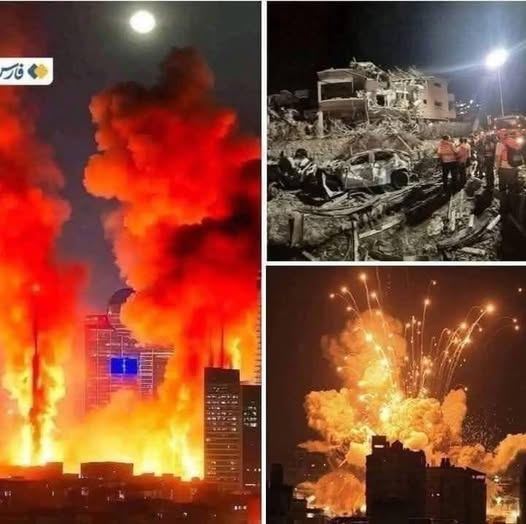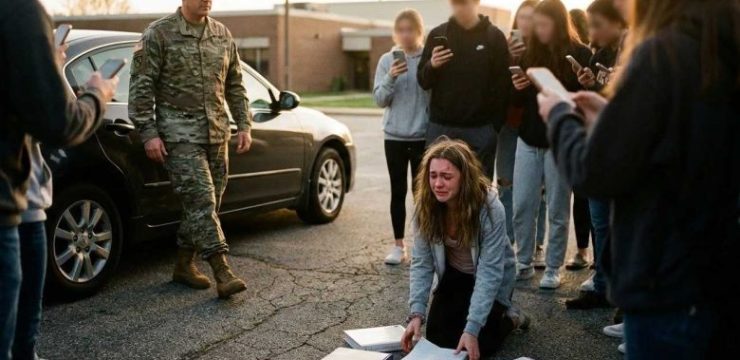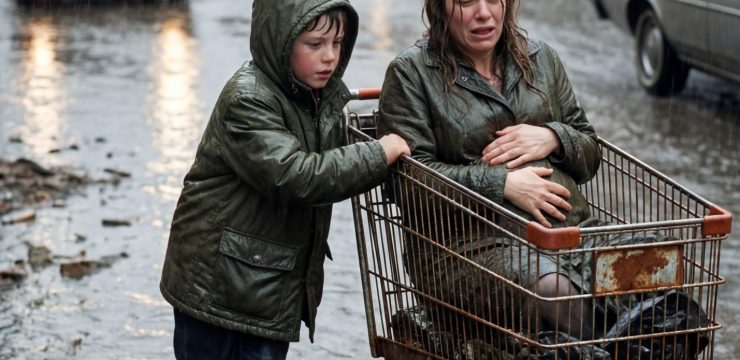In a rapidly unfolding situation, multiple explosions were reported across Israel just moments ago, sending shockwaves through major cities including Tel Aviv and Ashkelon and triggering widespread security alerts. Residents were startled by the sudden blare of air raid sirens, forcing families to rush into shelters and secure zones, a scene that for many has become an unsettling part of life.

While early reports hint at the possibility of a coordinated assault, officials have yet to confirm who is responsible or the exact origin of the attacks. The Israel Defense Forces quickly activated countermeasures, deploying resources to assess the scale of the threat and ensure that defenses were ready should further strikes occur. Emergency hotlines were quickly overwhelmed by calls from worried citizens, with people seeking guidance on how best to protect their families. Prime Minister Benjamin Netanyahu wasted no time in convening an emergency meeting with senior defense and intelligence leaders, a clear signal of the seriousness with which the government is approaching the crisis. Authorities have urged the public to stay calm but remain cautious, stressing the importance of relying only on verified information and following safety instructions.
Officials have advised residents to limit unnecessary travel, stay close to designated shelters, and monitor updates from trusted sources rather than relying on rumors or social media speculation. Security experts caution that fear and confusion can quickly escalate in such situations, making it vital for citizens to stay grounded and alert. Parents across the country are focusing on keeping their children calm, schools are reviewing emergency procedures, and workplaces are offering guidance to employees on how to handle sudden alerts. Beyond the official responses, the human side of this crisis is playing out in living rooms, shelters, and neighborhoods.
Families in Tel Aviv and Ashkelon held their children close as sirens pierced the night sky, and while many have endured this experience before, each incident renews the anxiety about what lies ahead. Yet there are also stories of courage, such as neighbors opening their homes to others without shelters and community leaders encouraging people to lean on one another. These moments of solidarity highlight the resilience of Israeli society and the strength that emerges when communities unite in the face of fear. From a security standpoint, Israel has long faced threats that test its defenses, and the IDF is known for its advanced systems designed to detect and neutralize incoming attacks. However, even the best defense cannot completely eliminate the vulnerability created by sudden assaults.
The IDF has reportedly activated missile defense systems, deployed ground units to strategic points, and ramped up intelligence operations to ensure rapid response capability. Analysts suggest the explosions may be linked to broader regional tensions, though officials have refrained from assigning responsibility until investigations are complete. Emergency services, as always, are playing a critical role, with ambulance crews, fire brigades, and medical staff working tirelessly to answer calls. Mental health services have also been activated, recognizing the psychological toll such situations take on children, families, and the elderly.
Technology has become a lifeline in this crisis, with mobile apps and community text alerts providing real-time instructions and updates, ensuring that citizens remain informed even as the situation develops. Global reactions were swift, with governments in the United States, Europe, and across the Middle East expressing concern and urging calm. International leaders have stressed the need to avoid escalation, calling for restraint and prioritizing the safety of civilians. Financial markets are also on edge, as instability in the region often influences oil prices, currency exchange rates, and investor confidence worldwide.
The ripple effects of events in Israel serve as a reminder of how interconnected global stability truly is. Education and preparedness continue to prove invaluable in moments like these. Schools throughout Israel regularly conduct emergency drills, teaching children how to remain calm and find safety during sirens or explosions. Parents reinforce these lessons at home, creating a culture of readiness that reduces panic and builds resilience. This emphasis on awareness is not about instilling fear but empowering people with knowledge, ensuring they understand how to act swiftly and safely when needed.
These lessons resonate beyond Israel’s borders, as communities around the world recognize the importance of emergency planning for natural disasters, public health crises, or security threats. While physical safety remains the highest priority, the emotional impact of these events cannot be underestimated. The sound of sirens alone is enough to trigger stress, and mental health experts stress the importance of maintaining routines, creating calm environments, and offering reassurance. Community organizations are stepping up with counseling, social support groups, and digital spaces for people to share their experiences. Religious and community leaders are also providing comfort, reminding people of the importance of faith, unity, and resilience.
Social media, while sometimes a source of misinformation, is also being used to share uplifting stories of bravery and solidarity, and officials are encouraging the public to focus on messages that inspire rather than inflame fear. Although the situation is fluid, one constant remains: the resilience of the Israeli people. Past challenges have shown their ability to endure hardship through solidarity, preparation, and trust in one another. This breaking news is not only about explosions and security threats but also about human courage, determination, and the values of unity that help people face uncertainty.
For Israel, this is a reminder that security extends beyond military power to include emotional well-being, community strength, and international cooperation. The story unfolding today demonstrates that while the immediate future may be uncertain, the resilience and unity of people remain powerful defenses. For the global community watching, it is also a lesson in how preparedness, compassion, and solidarity can help societies navigate crises of all kinds, proving that even in times of fear, there is always space for hope and determination.





